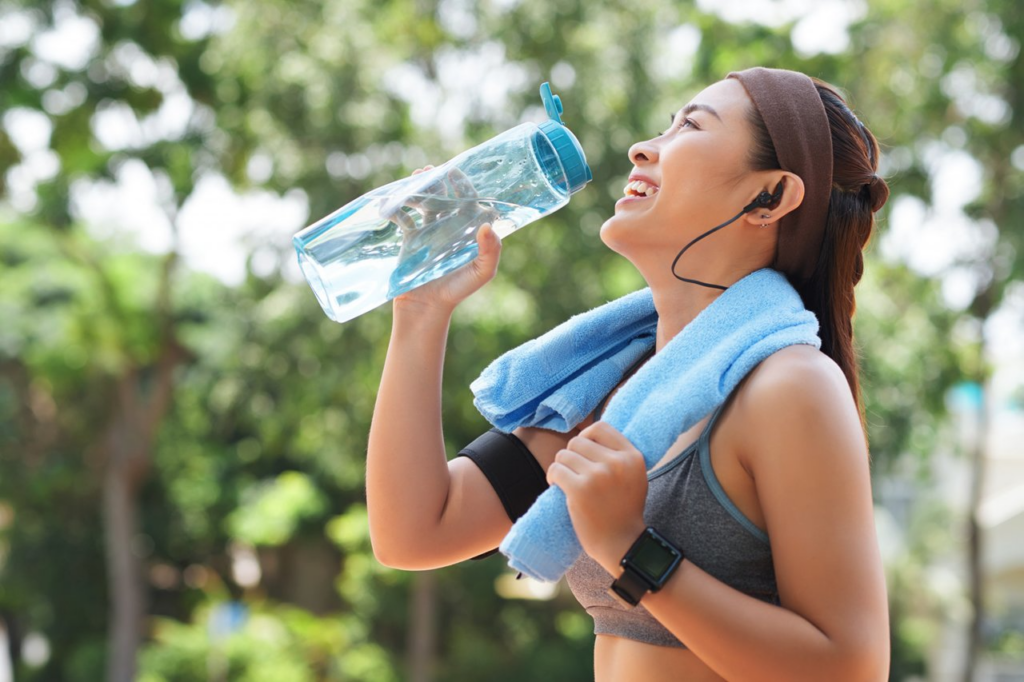In the realm of healthy eating, hydration often takes a backseat to considerations like nutrient density and portion control. However, staying adequately hydrated is a cornerstone of good health and is essential for the proper functioning of every system in the body. From regulating body temperature to supporting digestion and nutrient absorption, hydration plays a critical role in overall well-being. In this article, we’ll delve into the importance of hydration in a healthy diet, exploring why water is truly the elixir of life and how you can ensure you’re getting enough to keep your body thriving.
Hydration: The Unsung Hero of Nutrition
Water is the unsung hero of nutrition, quietly supporting every function and process within the body. It serves as a solvent, transporting nutrients and oxygen to cells and removing waste products and toxins. Additionally, water acts as a lubricant, cushioning joints and facilitating movements, and as a medium for chemical reactions, enabling processes like digestion and metabolism to occur efficiently.
The Role of Water in Digestion and Nutrient Absorption
Proper hydration is essential for optimal digestion and nutrient absorption. Water helps break down food in the stomach and intestines, allowing nutrients to be released and absorbed into the bloodstream. Without adequate hydration, digestion can slow down, leading to discomfort, bloating, and constipation. Ensuring you’re well-hydrated can help support regular bowel movements and promote a healthy digestive system.
Hydration and Physical Performance
Hydration plays a crucial role in physical performance, affecting strength, endurance, and overall athletic performance. Dehydration can lead to decreased muscle strength and endurance, reduced coordination and reaction time, and increased risk of heat-related illnesses during exercise. Staying hydrated before, during, and after physical activity is essential for maintaining optimal performance and preventing dehydration-related complications.
The Impact of Hydration on Cognitive Function
In addition to its physical benefits, hydration also has a profound impact on cognitive function and mental clarity. Even mild dehydration can impair cognitive performance, leading to decreased concentration, alertness, and memory retention. By staying adequately hydrated throughout the day, you can support optimal brain function and enhance your ability to think, learn, and problem-solve effectively.
Balancing Fluid Intake with Electrolytes
While water is the primary source of hydration, it’s also important to maintain electrolyte balance, particularly during periods of prolonged exercise or high heat. Electrolytes such as sodium, potassium, and magnesium play key roles in fluid balance, nerve function, and muscle contractions. Consuming electrolyte-rich foods and beverages, such as sports drinks, coconut water, and electrolyte-enhanced beverages, can help replenish electrolyte stores and support hydration during times of increased fluid loss.
Tips for Staying Hydrated
Ensuring you stay adequately hydrated doesn’t have to be complicated. Here are some simple tips to help you maintain optimal hydration throughout the day:
- Drink water regularly throughout the day, aiming for at least 8-10 cups (64-80 ounces) for most adults.
- Carry a reusable water bottle with you to remind yourself to drink water consistently.
- Eat hydrating foods like fruits and vegetables, which have high water content and contribute to overall fluid intake.
- Monitor your urine color as a hydration indicator – pale yellow to clear urine typically indicates adequate hydration, while dark yellow urine may signal dehydration.
- Be mindful of factors that increase fluid loss, such as exercise, hot weather, and alcohol consumption, and adjust your fluid intake accordingly.
FAQs (Frequently Asked Questions)
1. How much water should I drink each day?
- The recommended daily water intake varies depending on factors like age, gender, activity level, and climate. As a general guideline, aim to drink at least 8-10 cups (64-80 ounces) of water per day, but adjust based on individual needs and circumstances.
2. Can I meet my hydration needs with beverages other than water?
- While water is the best choice for hydration, other beverages like herbal tea, unsweetened coconut water, and diluted fruit juices can contribute to overall fluid intake. Just be mindful of added sugars and caffeine content in certain beverages.
3. Are there any foods that can help me stay hydrated?
- Yes, fruits and vegetables with high water content, such as watermelon, cucumbers, oranges, and strawberries, can contribute to overall fluid intake and help keep you hydrated.
4. Can I drink too much water?
- While it’s rare, it is possible to drink too much water, leading to a condition called hyponatremia or water intoxication. This typically occurs when large amounts of water are consumed rapidly, leading to an imbalance in electrolytes. It’s important to drink water in moderation and listen to your body’s thirst cues.
5. How can I tell if I’m dehydrated?
- Signs of dehydration include increased thirst, dry mouth, dark yellow urine, fatigue, headache, dizziness, and decreased urine output. If you experience these symptoms, it’s important to rehydrate promptly by drinking water and consuming electrolyte-rich foods and beverages.

